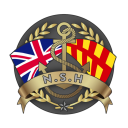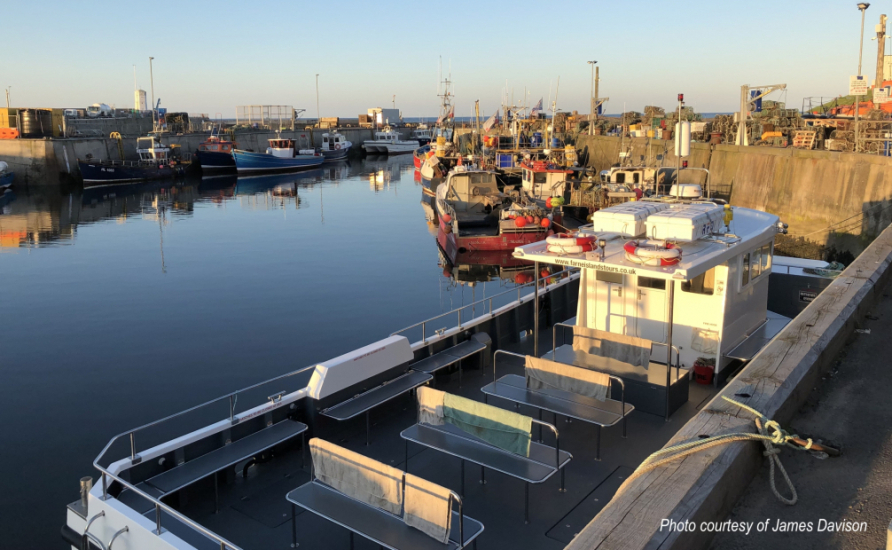REPORTING A DEAD OR STRANDED MARINE MAMMAL
Different reporting procedures exist depending on the type of animal, and whether the animal is dead or injured.
Please find the various steps below. Please also look at the list of important information that you will need when reporting a stranding, which can be found at the end of the document.
WARNING: Marine animals are wild animals. They may carry diseases which are transferable to humans. Do not put yourself at risk of injury. Do not attempt to move heavy animals without adequate assistance. Always wash hands thoroughly after any contact.
SEALS
Live seals are often just hauling out. Pups are often left alone while their mother is looking for food. When there is a live seal pup on the shoreline, observe it from a distance, look for signs of a cough or injury. If it is in a safe place and showing no obvious ill effects leave it alone and check again in 24 hours. If you are unsure whether it is safe or if the animal is unwell or injured, call either:
● British Divers Marine Life Rescue (BDMLR) 01825 765546 (office hours) or 07787 433 412 (out of hours)
● Coastal Warden for Northumberland County Council 07932 440838 Dead carcases should be reported to:
● Cetacean Stranding Investigation Program (CSIP) (which also collects data about seals) at the Natural History Museum 0207 449 6672, or the national strandings hotline 0800 652 0333. Can also be contacted on Facebook on CSIP or on Twitter @strandings_man
● Dove Marine Laboratory, Cullercoats, North Shields 0191 208 3051 who may wish to carry out an autopsy. Northumberland Wildlife Trust is also collating seal stranding data in collaboration with the Sea Mammal Research Unit at St Andrews.
Any information or photographs of injured seals would be much appreciated. Please contact Aurelie Bohan, Living Seas Officer at the Trust on 0191 284 6884 with the exact location and, if possible, a digital photo of the dead animal to help establish the cause of death. Although postmortem is more accurate, this method will also be valuable and is cost effective in monitoring the issue.
WHALES, DOLPHINS AND PORPOISES
Live strandings should be reported to:
● British Divers Marine Life Rescue (BDMLR) 01825 765546 (office hours) or 07787 433 412 (out of hours), who will arrange for local medics and vets to attend and deal with the animal.
● Cetacean Stranding Investigation Program (CSIP) (which also collects data about seals) at the Natural History Museum 0207 449 6672, or the national strandings hotline 0800 652 0333. Can also be contacted on Facebook on CSIP or on Twitter @strandings_man
● North East Cetacean Project (NECP), contact Dr Martin Kitching on 07908 119535 or by email at martin.kitching@marine-life.org.uk Dead carcases should be reported to:
● Cetacean Stranding Investigation Program (CSIP) (which also collects data about seals) at the Natural History Museum 0207 449 6672, or the national strandings hotline 0800 652 0333. Can 2 Admin/general office/miscellaneous/reporting a dead stranded mammal also be contacted on Facebook on CSIP or on Twitter @strandings_man
● North East Cetacean Project (NECP), contact Dr Martin Kitching on 07908 119535 or by email at martin.kitching@marine-life.org.uk
● Dove Marine Laboratory, Cullercoats, North Shields 0191 208 3051 who may wish to carry out an autopsy.
● If the animal has visible signs of human actions, bullet wounds, knife wounds or net marks, report them to the Marine Management Organisation 0300 123 1032.
Helpful Information to Report Dead Strandings If you are attending the stranding yourself, please try to gather as much of the following information as possible. If you receive a report of a stranding, please request the following from the person reporting the incident. Photos Pictures are really important as they provide definite identification. If possible please take photos of:
● 1 full length
● 1 head shot including teeth
● 1 of the genitalia region (to sex the animal)
● Any unusual marks Length of the animal If you can’t go back to measure it, please just provide an estimation. Location
● Name of beach
● Name of County
● Grid reference If the animal is still fresh please check to see if it is in a position where it could be retrieved by the Natural History Museum for a post-mortem examination.
Description If you are unable to provide a photo, please provide the following information:
● Description of the animals head, beak, swollen forehead.
● Did it have teeth or baleen?
● Were the teeth needle or spade shaped?
● Colour of the skin, including any white patches or stripes.
● The state of decomposition – fresh, moderately decomposed or very decomposed.
Information taken from: www.nifca.gov.uk/

